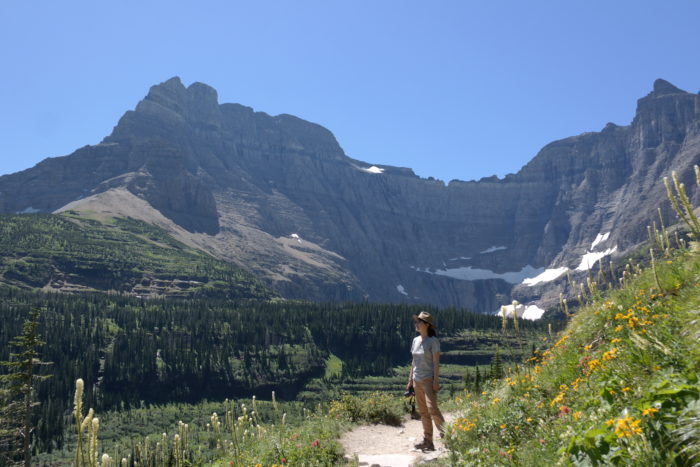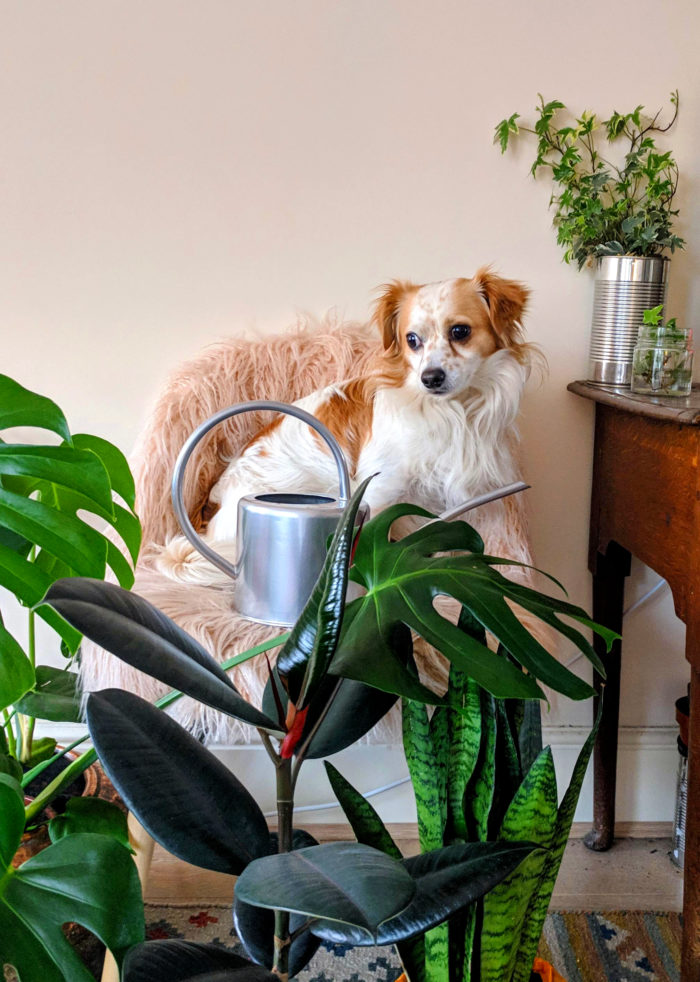Feeling overwhelmed with your busy life? Anxiety over, well… everything?
It’s okay—I’ve got the solution.
Take a deep breath.
Imagine yourself stepping into a garden. Your bare feet sink into soft green grass. Leafy trees rustle in the breeze and flowers bloom. Ahead of you, a stone fountain is trickling water, the sunlight dancing on the surface.
The air is fresh and fragrant. Birds sing. Everything is calm. Everything is peaceful.
Everything is so beautifully green.
Is nature really that powerful?
Yes. Studies show that when we place leafy plants in offices, new employees adjust quicker. Children who are exposed to nature learn quicker, and express greater creativity. In hospitals, viewing natural landscapes and access to gardens helps patients heal faster and lowers self-reported pain.
Nature is profoundly important.
So tell me, how much nature do you fill your life with?
–
The ecological self
We need to go deeper.
Spending time in nature increases well-being. That’s a fact. Just twenty minutes of nature exposure a week lowers your cortisol levels enough for doctors to now prescribe a ‘nature pill’.
But, feeling connected to nature holds the real key to mental resilience and a sense of purpose in life. People with an ‘ecological’ sense of self were found to have better overall mental and physical health.
What is the ecological self?
It’s identifying with nature—rather than viewing humans as existing outside of it. For centuries, art, culture, and stories were interwoven with nature—but since the technology boom of the twentieth century, we’ve been growing ever distant from our organic roots.
When we view ourselves as part of a wider ecosystem, we experience profound benefits from engaging with nature. We don’t just feel calmer, happier and healthier for surrounding ourselves with the natural world—we feel a sense of belonging and purpose too.
With our increasingly urban and digitalized lives, we’re living an ‘extinction of experience’ of nature.
It’s no wonder we’re stressed, anxious and very, very lost.
–
What colour is your world?
When I lived in London, one cold winter’s night while looking at the full moon shining through the struggling silver birch outside my window, I realized that I was living in shades of grey.
Grey buildings, grey pavement, grey skies.
I loved the city. Food, culture, friends—I had all the things I needed within the city limits. But, somehow, I felt disconnected, unfulfilled, and anxious, trapped by a labyrinth of roads, surrounded by miles of man-made landscape.
I didn’t want to leave the city. But, as I sat there, I realized the thing that I missed the most: Green.
Green is the color of tranquillity. It evokes love, environmental awareness and peace.
Color isn’t just a trick of the mind; color is energy. It has a psychological and physiological effect upon us. When we see color, wavelengths of light hit our retinas; these vibrations are converted into electrical impulses that pass into our brain, evoking a biochemical and psychological response. This response can vary greatly depending on associations with specific colors—a memory, and cultural interpretations.
But green—green is the colour of nature. There’s no escaping its abundance in the natural world.
Green light has the wavelength to which we’re most sensitive. That means it’s the color for which our retinas have to do the least adjustment (no wonder it’s calming!). Some colors are interwoven into the fabric of our being to calm us, and make us feel at home.
And when we need to feel calmer, it’s best to go directly to the source.
We need to step out into nature—or bring nature to us. And I have five ways for you to do exactly this.
–
Five ways to increase your connection to nature and develop your ecological self
1. Become a plant person
2. Get social media savvy
You don’t need to physically be present in nature to reap the benefits. Whether you need a mental escape in the middle of a busy work day or a refuge on your morning commute, photos of nature has the power to calm the mind.
(Why don’t you share the beauty and tag your favorite inspirational accounts in the comments?)
3. Go green—in everything.
When you see the world around you as an extension of yourself, you want to do everything in your power to care for it. Whether that means forgoing plastic straws, eating more plant foods or opting for sustainable fashion, going green gives you a profound sense of achievement.
So opt for the eco-friendly alternatives and see how this makes you feel. (And I bet the answer is ‘good’).
Takes self-care to a whole new level, doesn’t it?
Your evening entertainment can enrich your life—really.
Increase your nature exposure by watching Netflix shows with beautiful shots of the landscape and getting lost in books that delight in the glory of plants. (My favorites include Anne with an E and Hot House Flower. What would you suggest to others?)
5. Stop and smell the roses.
I know you’re busy.
But appreciation takes no time out of your day. It’s simply switching your awareness from one thing (that bus commuter train, your latest twitter argument) to another (the proverbial roses) you can increase the amount of beauty in your life.
Nature is already in your life. Spilling out of city gardens, filling the horizon from your window, and eternally blooming or turning golden as the seasons change.
Appreciation is a habit. So practice it, and you’ll soon be in a perpetual state of awe at the dazzling world you live in.
Also by Phoebe: 25 Ways To Lean Into Your Sensuality & Feel In Love With Your Life Again
Slow Living In Italy Changed My Life. How You Can Embrace Slow Summer
Get more like this—Subscribe to our daily inspirational newsletter for exclusive content!
__
Photo: Peaceful Dumpling; Kitty Louise






